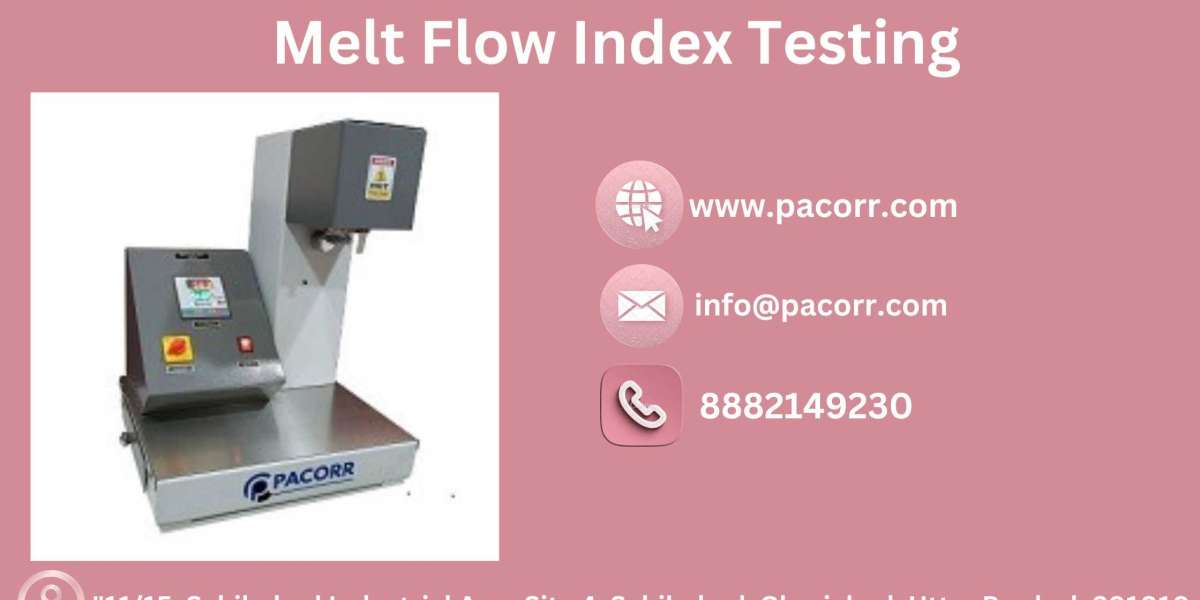Understanding the Melt Flow Index Tester: A Key Tool for Polymer Quality Control
In the world of plastics manufacturing, maintaining consistent material quality is crucial. The Melt Flow Index (MFI) Tester is an essential tool in this process, providing critical insights into the flow properties of polymers. This article explores the importance of the Melt Flow Index Tester, how it works, and why it’s a must-have in any plastics testing laboratory.
What is Melt Flow Index?
The Melt Flow Index (MFI) is a measure of the rate of extrusion of a thermoplastic polymer through a die of a specific diameter under a prescribed set of conditions. In simpler terms, it indicates how easily a material can flow when it is heated. The MFI value is an important parameter that affects the processing characteristics of polymers, such as extrusion, injection molding, and blow molding.
The MFI is expressed in grams per 10 minutes (g/10 min) and is determined by the amount of polymer that can be pushed through the die in 10 minutes at a specific temperature and pressure.
Why is MFI Important?
Understanding the MFI of a polymer helps manufacturers determine the suitability of the material for different applications. A higher MFI indicates a lower viscosity, meaning the polymer flows more easily. This is important for applications where the material needs to fill molds quickly and evenly. On the other hand, a lower MFI indicates a higher viscosity, which might be desirable for applications requiring stronger materials with higher resistance to deformation.
The MFI also provides insight into the molecular weight of the polymer, which directly influences its mechanical properties. For instance, polymers with a high molecular weight typically have a lower MFI and are stronger, but they are more difficult to process.
How Does a Melt Flow Index Tester Work?
A Melt Flow Index Tester Price operates by heating a sample of the polymer to a specified temperature until it reaches a molten state. The molten polymer is then forced through a die by applying a constant load. The tester measures the amount of polymer that extrudes from the die in a specified period, usually 10 minutes.
Here’s a step-by-step breakdown of the process:
- Preparation: A small amount of the polymer sample is loaded into the barrel of the tester.
- Heating: The sample is heated to a predefined temperature to ensure it reaches a uniform molten state.
- Extrusion: A piston applies a specific load to the sample, forcing it through a die of a known diameter.
- Measurement: The extruded polymer is collected and weighed, allowing the calculation of the MFI.
The tester is designed to comply with international standards, such as ASTM D1238 and ISO 1133, ensuring consistent and accurate results.
Applications of Melt Flow Index Testing
The Melt Flow Index Tester is widely used in various industries, including:
- Automotive: To ensure that plastic components meet performance standards.
- Packaging: To assess the flow properties of materials used in packaging films and containers.
- Consumer Goods: To maintain the quality of plastic products used in everyday items.
- Construction: To evaluate the properties of materials used in piping, insulation, and other building materials.
In each of these industries, MFI testing helps manufacturers ensure that their materials will perform as expected during processing and in the final application.
Choosing the Right Melt Flow Index Tester
When selecting a Melt Flow Index Tester, it’s important to consider factors such as the range of temperatures and loads the tester can accommodate, its compliance with international standards, and the ease of operation. Advanced models may also include features like automatic timing and digital readouts, which can enhance accuracy and ease of use.
Pacorr’s Melt Flow Index Tester is designed with these considerations in mind, offering precise control and reliable results. It is an ideal solution for manufacturers looking to maintain the highest quality standards in their products.
Conclusion
The Melt Flow Index Tester Price is a vital instrument for anyone involved in the production or quality control of thermoplastic polymers. By providing detailed information about the flow properties of materials, it helps manufacturers make informed decisions about material selection and processing conditions. For industries that rely on the consistent quality of plastic products, investing in a high-quality MFI tester, such as the one offered by Pacorr, is a wise decision.
Understanding and utilizing the Melt Flow Index Tester will ensure that your products meet the necessary standards, providing peace of mind and contributing to your reputation for quality and reliability in the market.



